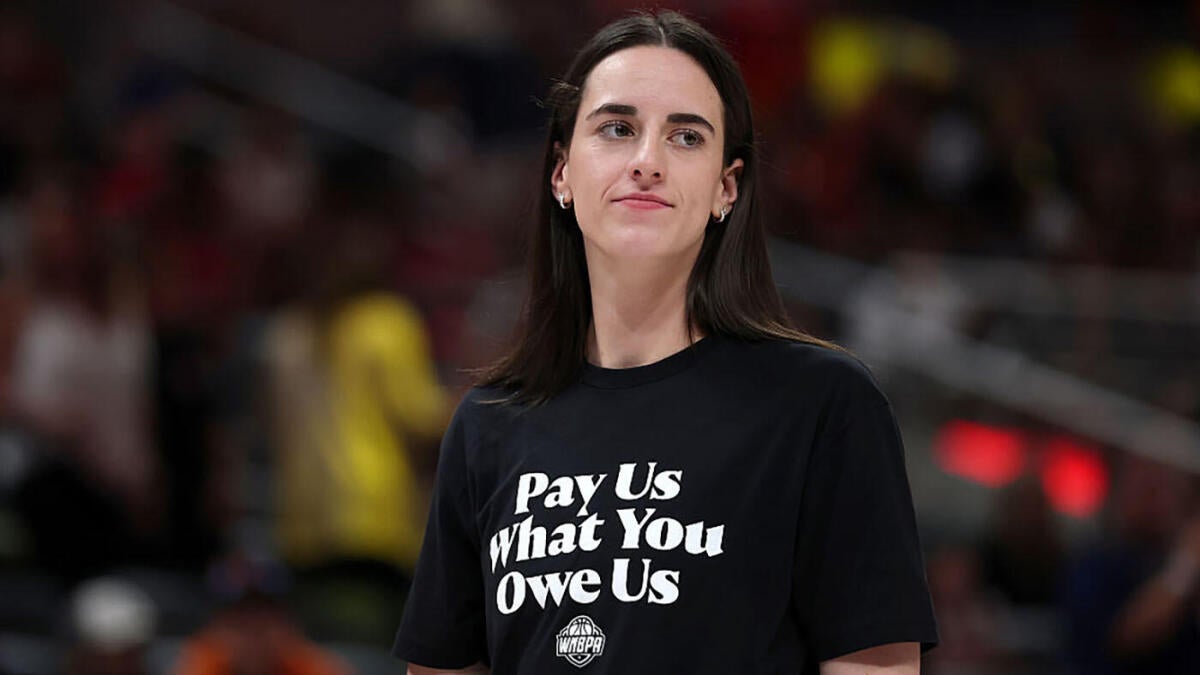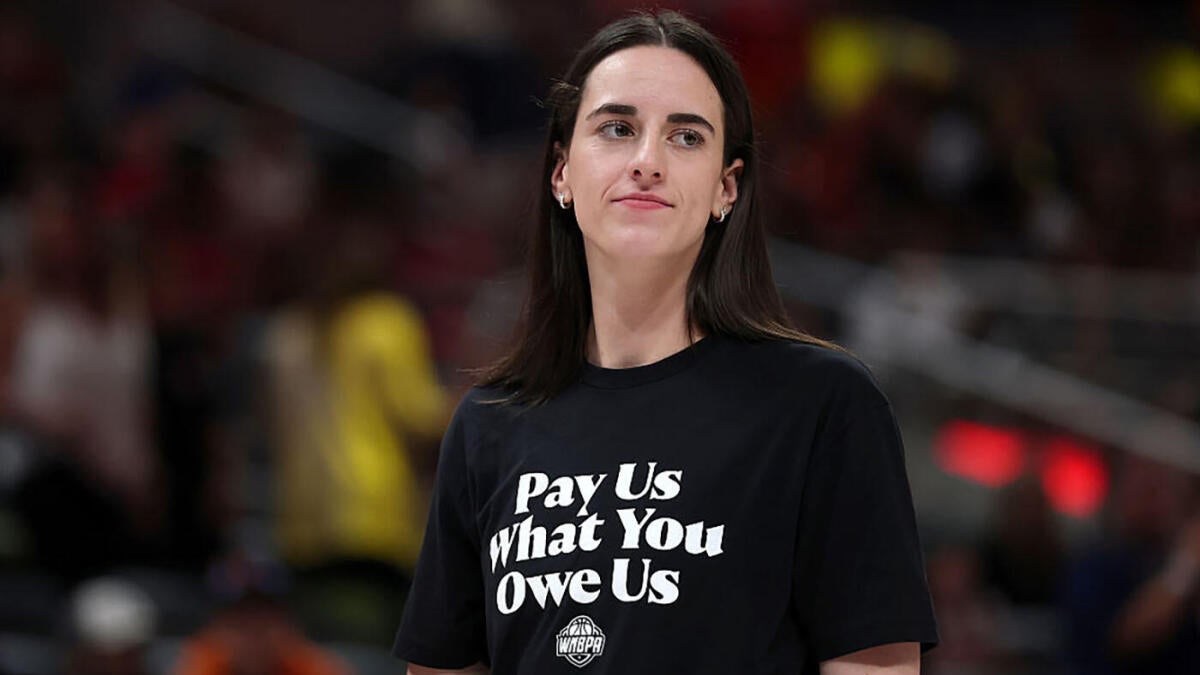The WNBA’s Fight for Fair Compensation: A Turning Point in Women’s Sports
Introduction: A Bold Statement on the Biggest Stage
The 2025 WNBA All-Star Game in Indianapolis was more than just a celebration of the league’s top talent—it became a powerful platform for advocacy. Players from both Team Clark and Team Collier made a unified statement by wearing black t-shirts with the message: “Pay Us What You Owe Us.” This bold move underscored the players’ determination to secure a fair and equitable collective bargaining agreement (CBA) with the league. The message was clear: the WNBA’s soaring popularity must translate into fair compensation for its athletes.
The Urgency of CBA Negotiations
The current CBA is set to expire at the end of the season, making these negotiations a critical juncture for the WNBA and its players. The players’ decision to opt out of the previous CBA in October signaled their intent to push for significant changes. At the heart of the negotiations are several key issues: a better revenue-sharing model, increased salaries, improved benefits, and enhanced working conditions. The players are demanding a more equitable distribution of the league’s revenue, arguing that their contributions to the WNBA’s success warrant a more substantial share.
The “Pay Us What You Owe Us” message reflects the players’ frustration with what they perceive as a lack of recognition for their value. The WNBA has experienced unprecedented growth in recent years, driven by increased viewership, lucrative sponsorship deals, and the emergence of star players like Caitlin Clark. However, the players argue that their compensation has not kept pace with this growth. The shirts were worn after the players and the league failed to reach a new collective bargaining agreement at an in-person meeting.
The All-Star Game as a Catalyst for Change
The decision to use the All-Star Game as a platform for their message was strategic. The event draws significant media attention and provides a high-profile opportunity to amplify their voices. All-Star games are typically filled with pep and fanfare, but this time, the WNBA players used the platform to send a clear and direct message to the league. By wearing the “Pay Us What You Owe Us” shirts during warm-ups, the players ensured that their concerns would be front and center during the weekend’s festivities.
Even sidelined rookie sensation Caitlin Clark, who is recovering from a groin injury, participated in the protest, underscoring the unity among WNBA players. Clark’s involvement, in particular, added weight to the message, given her significant impact on the league’s popularity and revenue. Her presence highlighted the collective strength of the players and their shared commitment to securing a fair CBA.
Key Issues in the CBA Negotiations
Revenue Sharing and Salary Disparities
The WNBA players are advocating for a more favorable revenue-sharing model that would allow them to benefit directly from the league’s financial success. Currently, WNBA players receive a smaller percentage of league revenue compared to their counterparts in the NBA. The players are seeking a more equitable split that reflects their contribution to the WNBA’s growth.
Salaries are another major point of contention. While the WNBA has made strides in recent years, player salaries still lag far behind those in other professional sports leagues. Many WNBA players supplement their income by playing overseas during the offseason, which can take a toll on their bodies and personal lives. The players are pushing for higher salaries that would allow them to focus on their WNBA careers without having to seek additional income elsewhere.
Improved Benefits and Working Conditions
In addition to salary increases, the players are also seeking improved benefits, including better healthcare coverage, retirement plans, and family support services. They are advocating for resources to help them balance their professional careers with their personal lives.
The players are also advocating for better travel accommodations, training facilities, and overall support systems. They argue that these improvements are essential for ensuring their health, well-being, and performance on the court. The current conditions often fall short of what is provided to athletes in other professional leagues, highlighting the need for significant improvements.
The Broader Context: Gender Equity in Sports
The WNBA players’ fight for fair compensation is part of a broader movement for gender equity in sports. Female athletes have historically been undervalued and underpaid compared to their male counterparts. The WNBA players are challenging this status quo and demanding that their contributions be recognized and rewarded fairly.
The players are not only advocating for themselves but also for future generations of female athletes. They believe that by securing a fair CBA, they can pave the way for a more equitable and sustainable future for women’s basketball. Their fight is a testament to their resilience and determination to create a more just and inclusive sports landscape.
The Unrivaled League: A New Frontier
Amidst the backdrop of CBA negotiations, the Unrivaled league, co-founded by WNBA stars Breanna Stewart and Napheesa Collier, adds another layer to the narrative. Collier even wore an Unrivaled T-shirt while drafting her first WNBA All-Star team as captain. She mentioned the league repeatedly and drafted every Unrivaled teammate available to her. This league symbolizes the players’ initiative to take control of their careers and create opportunities outside the traditional WNBA structure, potentially influencing the negotiation dynamics and highlighting players’ agency.
The Unrivaled league represents a bold step toward player empowerment and innovation in women’s basketball. It serves as a reminder that players are not just athletes but also entrepreneurs and leaders who are shaping the future of the sport. The league’s success could provide a model for how players can take ownership of their careers and create new avenues for growth and opportunity.
A Pivotal Moment for the WNBA
The 2025 WNBA All-Star Game served as a pivotal moment for the league. The players’ unified message resonated with fans, media, and stakeholders, putting pressure on the league to address their concerns. The outcome of the CBA negotiations will have a profound impact on the future of the WNBA and its players.
The WNBA finds itself at a crossroads, and the decisions made during these negotiations will shape the league’s trajectory for years to come. As negotiations continue, the players remain committed to their cause, demonstrating a resolve to achieve a CBA that reflects their value and contributions to the game. The WNBA must recognize the true worth of its players and invest in their success, not only for the sake of fairness but also to secure a vibrant and sustainable future for the league. The world is watching to see if the league will, indeed, pay what it owes.
Conclusion: A Call for Justice and Progress
The WNBA’s fight for fair compensation is more than just a negotiation—it is a movement for justice and progress. The players’ bold stance at the All-Star Game has brought the issue to the forefront, sparking conversations about gender equity, fair pay, and the value of women’s sports. As the league and the players continue to navigate these negotiations, the hope is that a fair and equitable CBA will be achieved, setting a new standard for women’s basketball and professional sports as a whole.
The players’ unity and determination serve as an inspiration, not just for current athletes but for future generations who aspire to play at the highest level. The WNBA’s success hinges on its ability to recognize and reward its players fairly, ensuring that the league continues to thrive and inspire. The time for change is now, and the players are leading the charge toward a more equitable and prosperous future for women’s sports.












